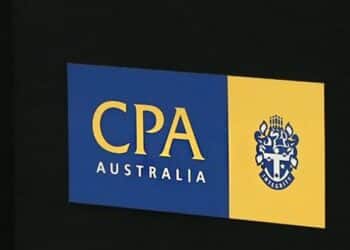The research from HUB24 found that two-thirds of the advisers surveyed agree or strongly agree that the best interests duty has led to better outcomes for clients.
In addition, more than half disagree that the best interests duty is just further red tape and compliance for no real benefit, while almost four out of five disagree or strongly disagree that it is a waste of advisers’ time and money.
“Whatever advisers may have thought about the best interests duty and the attendant compliance burden before it was introduced, adviser responses suggest there is now broad acceptance that it was both necessary, has led to better results for clients, and that it does not represent regulation for regulation’s sake, and it is not a waste of time and money,” the research said.
HUB24 managing director Andrew Alcock said that, at a time when there is increasing scrutiny on the quality of financial advice, it’s very clear from this research that advisers are focused on meeting the best interests of their clients.
“In our experience, advisers have always considered a range of factors, and not just price, when selecting financial products to help deliver outcomes for their clients both now and for the future,” Mr Alcock said.
The chief executive of the Association of Financial Advisers, Philip Kewin, said the best interests duty is “arguably the most important obligation for financial advisers”.
“We would encourage more research being done in this space and more guidance provided to financial advisers to ensure that they can be confident that they are meeting their obligations,” Mr Kewin said.
“Ultimately an increased awareness of the best interests duty and related obligations will result in improved outcomes for the consumers of financial advice.”




“In our experience, advisers have always considered a range of factors, and not just price, when selecting financial products to help deliver outcomes for their clients both now and for the future,” Mr Alcock said.
Correct there are other factors. For all of the institutionally aligned financial advisers their main consideration is which of their own institutions products should the clients be put into. Nothing to do with price, nothing to do with the clients best interest.
That’s a very large brush of tar you’re wielding there, Anon…
Just to confirm, this is not a slight on the ethics of the advisers that are aligned with the major institutions, but the fact is they generally recommend in-house products.
How many AMP advisers recommend insurance or super funds that is not owned by AMP? There might be some, but they will be in the minority.
1
I’ll bring the feathers….LOL
I will limit my comments to one essential question strangely overlooked by the Royal Commission. It is this: ASIC does not require financial planners to act in their client’s best interests.
Allow me to explain.
The 2013 Future of Financial Advice (FOFA) reforms introduced a statutory[1] best interest duty. This duty is found in sections 961B(1) and 961G of the Corporations Act. They are brief sections, and together provide a simple core rule that financial advice must be appropriate to the client and in the client’s best interests.
As I say, a simple core rule. However, institutional complexities frustrate it, and mean it is almost never observed and most advice is not in the client’s best interests.
The institutional complexity is almost 80%[2] of financial planners are only allowed to recommend in-house products and cannot recommend other products[3]. The AMP financial planners can only recommend AMP products. The CBA financial planners can only recommend CBA products, and so on. This means 80% of financial planners are contract barred from providing advice in the client’s best interests: it is impossible for each institution’s product to be the best and most appropriate product for each client. Yet that is the product the adviser has to recommend. No other option allowed.
This complexity was recognised by ASIC and the institutions during the FOFA drafting process. ASIC and the institutions cooperated on a so called “safe harbor” rule where advice is deemed to be in the client’s best interests, even if it is not in the client’s best interests, ie in the 80% of cases where an institution is controlling the advice. This “safe harbor” rule is better titled “ASIC’s cop out rule”, and is found in sub-section 961B(2) of the Corporations Act. It comprises a list of procedures which, if followed, deem the advice to be in the client’s best interests, even if it is manifestly not.
For example, an AMP advice to buy an AMP investment with lower performance history and higher costs than an otherwise similar CBA investment is deemed to be in the client’s best interests even though it is manifestly not. A CBA income protection insurance policy with higher premiums and lower definitions than an otherwise similar AMP policy is deemed to be in the client’s best interests even though it is manifestly not.
This is bad enough. It means section 961B is in effect a statutory non-best interest duty.
But the position is made worse because ASIC adopts a reverse view of the law, to apply section 961B(2) over section 961B(1). That is, ASIC ignores the plain and simple words of section 961B(1) and instead focusses exclusively on whether the detailed procedures in section 961B(2) are met.
This means ASIC routinely finds:
1. advice which is manifestly not in the client’s best interests under section 961B(1) is determined/deemed by ASIC to be in the client’s best interests solely because the section 961B(2) process has been followed. Examples being those provided for AMP investments and CBA insurances in the above paragraphs (ie virtually all institutional advices, ie 80% or more of all advices in practice) and
2. advice which is manifestly in the client’s best interests under section 961B(1) is determined/deemed by ASIC to not be in the client’s best interests solely because the section 961B(2) process has not been followed. An example is the case of Julie Hamilton, who was banned by ASIC in 2017 in exactly these circumstances[4].
This was not discussed at the Royal Commission
The strange case of section 961B is a key part of the on-going overly close dance between ASIC and the institutions. If ASIC was to enforce a real best interests duty and not its box ticking surrogate the institutions would (in most cases) not be able to recommend their own products. This goes to the heart of the financial planning industry: it would require institutions to divest their advisory arms. This would be the end of non-bank institutions such AMP, because virtually no one other than AMP advisers recommend AMP products. It would seriously impact the bank institutions. They would lose fortunes if they had to recommend the best product, which will usually be a competitor’s product, over their own product.
This was never going to be discussed at the Royal Commission.
The review methodology described in ASIC Report 562 would seem to disagree with your description of the interaction of s961B(2) and s961B(1). It suggests, at paragraphs 149-152, that where the s961B(2) process is not met, then the more general obligations under s961B(1) are indeed taken into account.
Really?
https://www.financialstandard.com.au/news/advisers-question-value-of-best-interests-duty-132112391
I’m so confused….did both authors read the same research?
Gold
Shame it doesn’t matter when they let every man and dog sell group insurance with water down products and no consumer rights or protections no SOA, contracts can be changed at any time cause they are not guaranteed contracts from the same companies that have good quality contracts. Its crazy. how about let financial planners sell good quality cover with no soa you will get the under-insurance problem down and get better out comes for client far better then people are getting with group cover “real insurance”